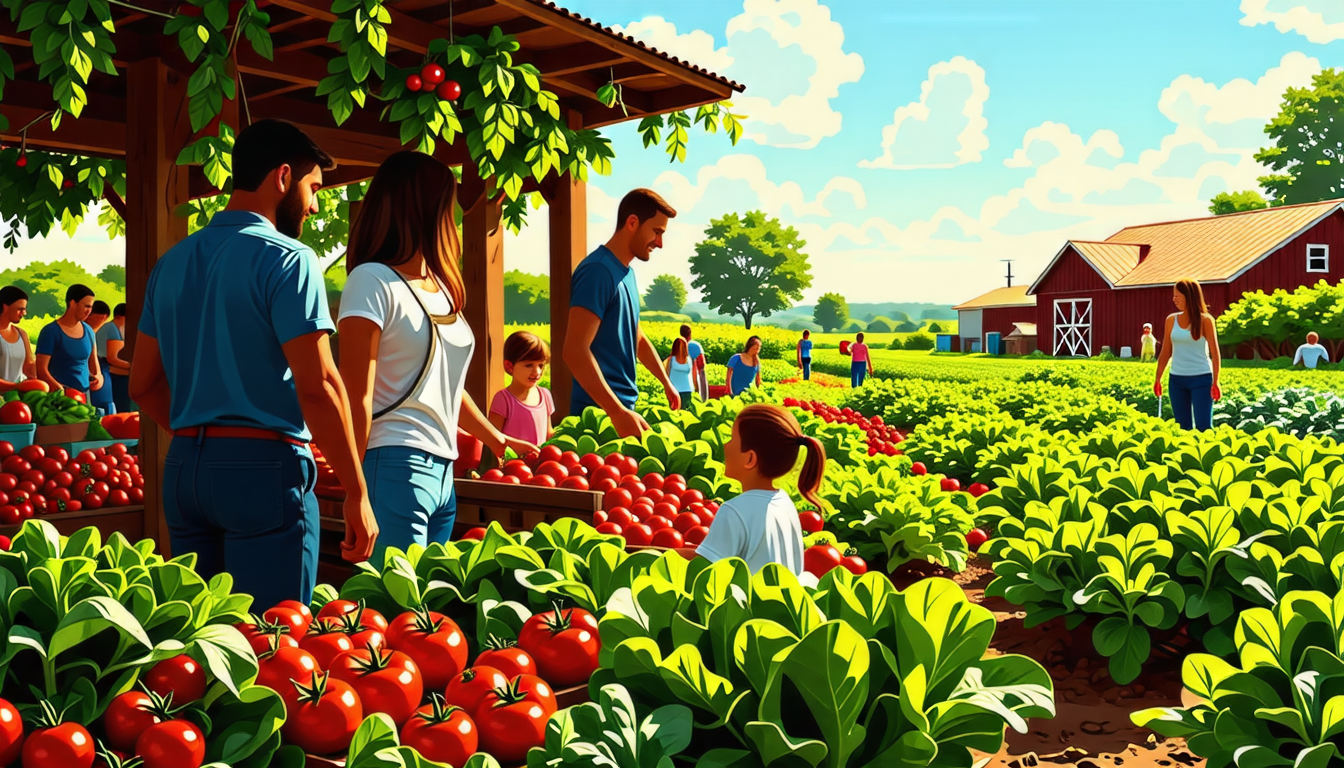|
IN BRIEF
|
Imagine a world where shopping for groceries does more than just fill your pantry; it strengthens your community, fosters local relationships, and supports sustainable agriculture. This vision comes to life through community food co-ops. Unlike conventional grocery stores, co-ops prioritize people over profits, creating a vibrant hub where health, well-being, and economic prosperity intersect. They not only bring fresh, locally sourced produce to your table but also empower you to be part of a movement that values social responsibility and community engagement. By choosing to shop at a food co-op, you become an integral part of a collective that continuously reinvests in the local economy, ensuring a thriving, resilient community for everyone. Join the revolution of conscious consumption!
Community food co-ops represent a unique and sustainable alternative to traditional grocery stores. By prioritizing the needs of the community, these cooperatives focus on providing fresh, healthy options while simultaneously supporting local economies. This approach not only fosters community connections but also nurtures a sense of collective responsibility towards food sourcing and consumption.
Community Resilience
In a world where food systems are increasingly challenged by climate change and economic pressures, the resilience fostered by food co-ops is vital. By creating a strong network of local producers and consumers, co-ops enhance the community’s ability to adapt to challenges and uncertainties. Supporting a co-op means investing in a sustainable future, where everyone has access to healthy food and a thriving local economy.
Keeping Money Local
When consumers shop at a food co-op, a larger portion of their spending stays within the local marketplace. This can lead to enhanced economic stability and growth for the area. Since co-ops often partner with local farmers and artisans, money circulates more effectively, promoting a vibrant community atmosphere.
Community food co-ops represent a transformative approach to grocery shopping, especially in today’s climate where consumers demand more responsibility and local engagement. Unlike traditional supermarkets that prioritize profits, co-ops focus on people and health, often generating more income for local farmers and businesses. According to recent studies, over 30% of co-op sales are reinvested into local economies, demonstrating their role in strengthening community ties.
Moreover, these cooperatives not only offer access to fresh produce but also promote smaller-scale agriculture by supporting local farmers who prioritize sustainability. This focus on local sourcing ensures that members receive high-quality food while reducing carbon footprints associated with food transport. In fact, co-ops provide an average of 20% more locally sourced food compared to conventional grocery stores.
Furthermore, being a member of a food co-op enhances social responsibility, creating opportunities for members to engage in community-building activities. Members have a voice in decision-making and enjoy benefits like lowered costs and better service. For those curious about the impact of food co-ops, resources such as Grocery.coop outline the numerous advantages of joining these beneficial networks.
In essence, community food co-ops provide an essential foundation for economic prosperity, local food security, and a more sustainable way of living.
Community food co-ops represent a vibrant alternative to conventional grocery stores, thriving on the principles of local support and sustainability. By investing in local economies and championing small-scale agriculture, these cooperatives ensure that a larger share of the profits circulates within the community. They prioritize health and wellness, offering members access to fresh produce that not only nurtures individual well-being but also fosters a stronger community fabric. The democratic nature of co-ops encourages every member to play a role in decision-making, fostering a feeling of belonging and engagement. Ultimately, joining a community food co-op is about more than just shopping; it’s a commitment to building a healthier, more connected society.
Frequently Asked Questions about Community Food Co-ops
What are Community Food Co-ops? Community Food Co-ops are collaborative grocery stores that focus on providing healthy, fresh food while prioritizing the welfare of their members and local communities over profit.
How do Food Co-ops benefit local economies? Food Co-ops keep more money in the local economy by sourcing products from local farmers, allowing for healthier market ecosystems and providing jobs within the community.
Why should I choose to shop at a Food Co-op? Shopping at a Food Co-op gives you access to fresh produce, supports small-scale agriculture, and contributes to a socially responsible economy.
Do Food Co-ops contribute to community building? Yes, Food Co-ops are deeply rooted in community values and often serve as social hubs, fostering connections among members and promoting local culture.
How do Food Co-ops differ from traditional grocery stores? Unlike traditional grocery stores, Food Co-ops prioritize employee wellness, community interaction, and sustainable practices, ensuring that their actions benefit the community at large.
Can joining a Food Co-op save me money? While some might think Food Co-ops are more expensive, they often offer competitive prices and better quality products, ultimately leading to cost savings in health and nutrition.
What types of products can I find at a Food Co-op? Food Co-ops typically offer a wider variety of local produce, organic options, and specialty items that may not be available at conventional stores.
Are there any disadvantages to Food Co-ops? While there can be challenges such as limited hours or initial membership fees, the benefits often outweigh the drawbacks for members passionate about community and quality.
How can I get involved with a Food Co-op? You can get involved by becoming a member, volunteering, or participating in community events organized by the co-op to help strengthen local ties.

